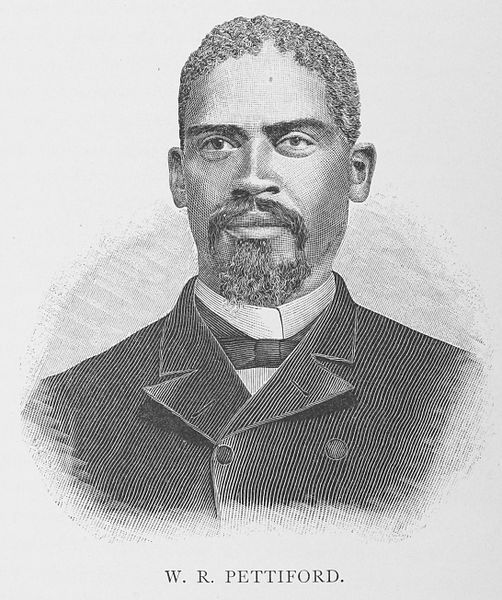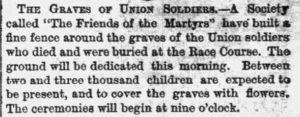Once upon a time in Black Entrepreneur History was an African American man named William Reuben Pettiford, and he was responsible for the 1st Black-owned bank in the southern state of Alabama in 1890 called The Penny Savings Bank, also called the Alabama Penny Savings Bank, which ended up becoming the largest, strongest and most successful black owned bank in the entire United States of America by the year 1914.
Born on January 20, 1847 in Cedar Creek, North Carolina to a free mother who ended up widowed later in life, William Reuben Pettiford wanted to move further down south into the state of Alabama for more opportunity for education and career when he turned 22 years of age. The reason why Alabama was fit for this was because of Lincoln Normal University where he would become educated in becoming a teacher at the African American institution.
Lincoln Normal University - formerly enslaved black men, nine in total, sat on the Board of Trustees at its inception. The names of those men were Joey Pinch, Thomas Speed, Nickolas Dale, James Childs, Thomas Lee, John Freeman, Nathan Levert, David Harris, and Alexander H. Curtis
He graduated and felt the call into the ministry while teaching at the age of 30. Therefore, he started to study theology.
During this time, he met and fell in love with a woman named Della Boyd. They married on November 23, 1880 in Dallas, Alabama. At this time, he already had his own home, and the couple had three children – Wilma E., Walter R. and Luther B.
In 1883, he became pastor of 1st Colored Baptist Church of Birmingham, Alabama to which the name later changed to Sixteenth Street Baptist Church.
He became great friends with Tuskegee Institute founder Booker T. Washington and shared his philosophy of African Americans being self reliant and independent while at the same time forging good business relationships from withing the race as well as outside of the race with prominent white business owners.
Pettiford didn’t like to see black people wasting their money and not having the proper avenues to save their money due to African Americans being shut out and dismissed at white owned financial institutions. It made it difficult for black people increase avenues of wealth creation.
Therefore, he wanted to start his own black-owned financial institution. He networked with many intelligent and local, prominent Black businessmen in the area. They liked the idea and all of them began promoting and supporting Pettiford’s bank for months before it’s grand opening.
It was on October 15, 1890 that Pettiford founded the Penny Savings Bank with it’s grand opening. It had enough support to remain open and growing through five years to the time when it became incorporated in 1895. Pettiford was president of Penny Savings Bank.
At the bank’s incorporation, there was an expansion, placing locations in Selma, Montgomery and Anniston. Most of the bank’s success came from Pettiford being a huge promoter of home ownership, so the Penny Savings Bank actually became the largest mortgage lender in Birmingham’s black community of Smithfield.
As the bank thrived, in 1906, Pettiford co-founded the National Negro Banker Association and was president of the association. It was in 1913 that the bank had built itself a 5 story building that was home to a multitude of black-owned businesses who paid rent to the bank while helping themselves at the same time with a professional location. It was a black-owned team effort to enhance the lives of Black people and the community by leaning on each other.
By 1914, Penny Savings Bank was the largest and most secure Black-Owned bank in the nation, having the support of not only black people but major white financial institutions as well.
Unfortunately, Reverend William Reuben Pettiford passed away on September 20, 1914 and was buried in Oak Hill Cemetery in Birmingham, Alabama. His tombstone reads:
A great pioneer for the city of Birmingham, Pastor of 16th Street Baptist Church, Founder of Alabama Penny and Savings Bank, Leading Spirit of the Negro High School
He was only 67 years old, but in that 67 years, he did all he could to bring more stability to the lives of Black people in the South who were being trodden down by racism and laws that tried to hold them down.
The life of Penny Savings Bank, by 1914 known as Alabama Penny Savings Bank had been sold and ended it’s reign when Pettiford died, with no one to lead the bank into it’s future quite as well as he could.
Sources
Year: 1900; Census Place: Birmingham Ward 2, Jefferson, Alabama; Page: 6; Enumeration District: 0137; FHL microfilm: 1240022
Ancestry.com. Alabama, County Marriage Records, 1805-1967 [database on-line]. Lehi, UT, USA: Ancestry.com Operations, Inc., 2016.
Year: 1910; Census Place: Birmingham Ward 2, Jefferson, Alabama; Roll: T624_18; Page: 21A; Enumeration District: 0046; FHL microfilm: 1374031
Year: 1850; Census Place: Cedar Creek, Granville, North Carolina; Roll: 631; Page: 139b





More Related Stories
James Wormley – Founder of the Most Expensive Hotel in Washington D.C. in 1800s – the Wormley Hotel
William E. Matthews – Wealthy Financial Broker & Civil Rights Leader of 1800s
Charles Porter Grove – Owner of Montana and Illinois Gold Mining Company & Leader of the “Dreamed” Grove City, Montana